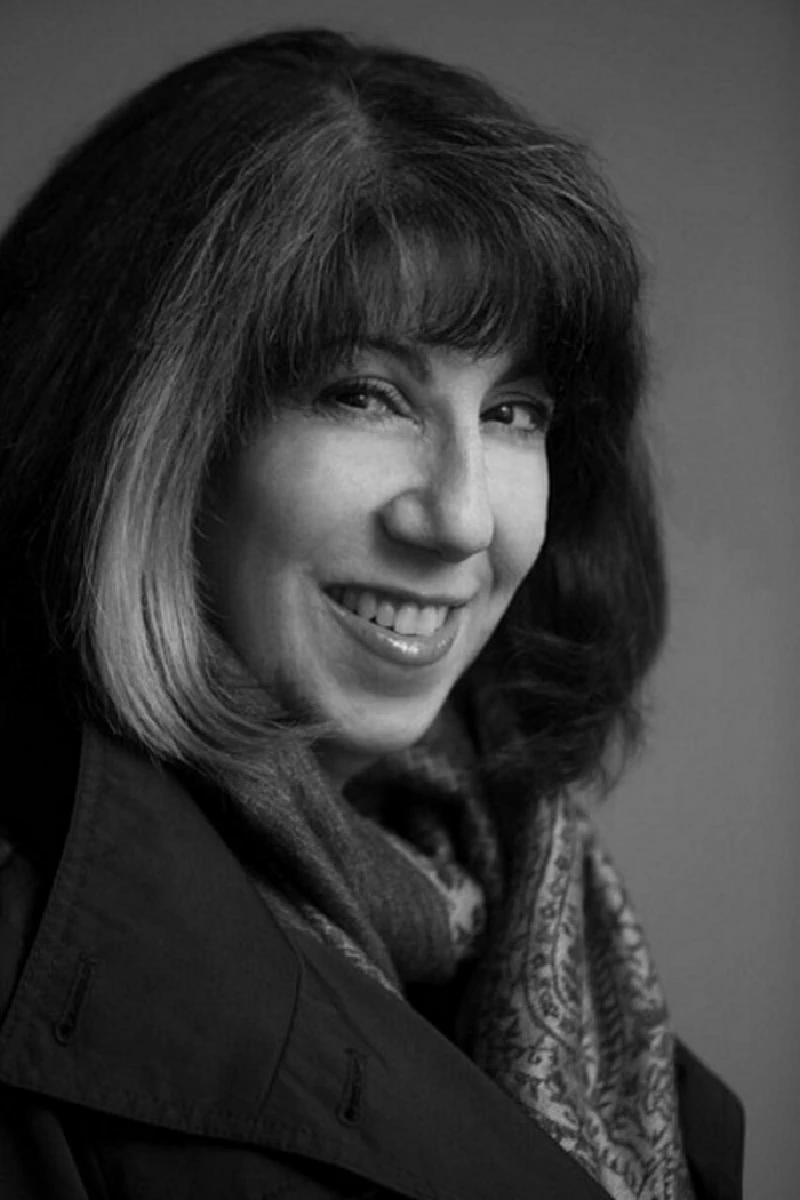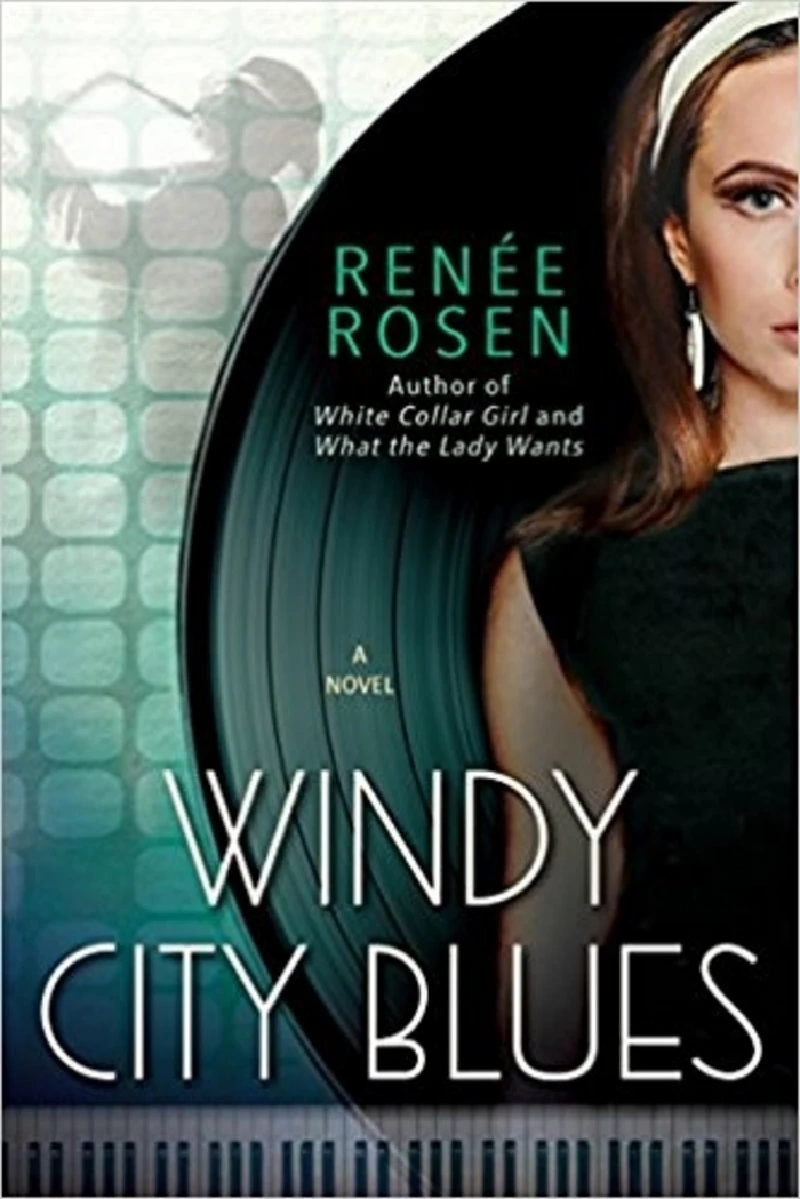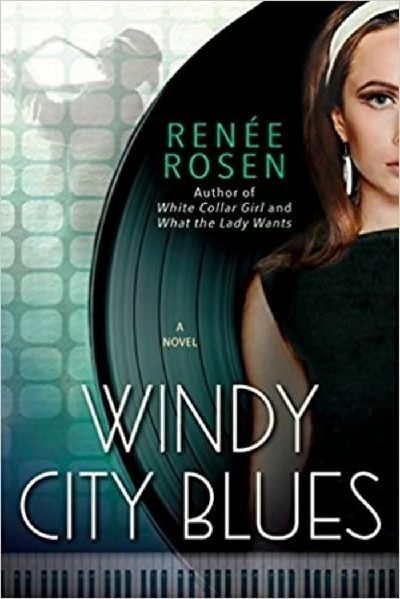Renee Rosen - Interview
by Lisa Torem
published: 9 / 2 / 2018

intro
Lisa Torem speaks with Chicago-based author, Renee Rosen, about her latest novel, 'Windy City Blues', which is set in 1950s and 1960s Chicago.
Imagine your native city brought to life, decades before your time. Street names and bus routes and seasonal variances may feel familiar, but the politics and discourse greatly upset your equilibrium, causing you to squirm. Sometimes the astute observations make you laugh out loud. You’ve known people that cuss that way or use food, rather than phrases, to finish a sentence. The narrative sometimes swirls around truculent train sounds, echoing from a lonesome blues harp, or a glass bottle neck, screeching against a steely fret. And as you steep yourself further into the story, you wish you could hug, shake hands or even slap in the face a character or two. That’s my take on ‘Windy City Blues’. I felt transported to another world after reading Renee Rosen’s work, a Chicago-based novel set in the 1950s and 1960s, and, though I was already acquainted with the famous building at 2120 S. Michigan (which inspired a lusty song by the Rolling Stones) and knew a thing or two about Muddy Waters, Chuck Berry, Willie Dixon and several of the other actual artists mentioned, I’d never seen a writer create such a clever mash-up between fictional and non-fictional characters before. A prolific author of award-winning historical fiction, Renee had already penned ‘Every Crooked Pot’, ‘What the Lady Wants’, ‘Doll Face’ and ‘White Collar Girl’ before tackling this always relevant story, which will thrill blues lovers and social historians alike. Although Renee was born and raised in the state of Ohio, the home of the Rock and Roll Hall of Fame and the locale of her debut novel, she set her subsequent books in Chicago, where she has made her home for thirty years. That said, few would argue that this sophisticated lady deserves to acquire “windy city” status… Renee took time from her frequent historical talks and sold-out writing workshops to talk about her latest novel and what it took to bring it to life. Welcome, Renee Rosen! PB: Congratulations on the publication of ‘Windy City Blues’. The story centres around two fictional characters: Leeba, who works at a record company, and comes from a religious, Jewish family, and Red, a black guitarist, who plays with the likes of Muddy Waters. The couple faced major discrimination, as they certainly would have in the era in which the book was set. Did you base their relationship on a particular couple? RR: No, although I know several inter-racial couples, the love affair between Leeba and Red is completely fictional. The mixed couples I know thankfully didn’t face the kind of discrimination and blatant racism issues that Leeba and Red would have encountered during the 1950s and 1960s when Chicago was still very much a segregated city. Some could argue that it still is today. PB: In ‘Windy City Blues,’ your characters are highly developed and realistic. I am a native Chicagoan and can imagine having a drink with Aileen, Red, Leeba or even Leonard! The dialogue continually moves the story forward. How many drafts did it take to get things just right? RR: Oh my, I think I lost count! I had many false starts with this book, mostly because I was trying to tell the whole story from Leeba’s point-of-view. It wasn’t until after months and probably 200 pages that I later trashed, that I realised the story of the blues and the Civil Rights Movement was too big to be told through one character’s limited point of view. I’m big on revising and editing. It’s my favorite part of the writing process. I always do at least ten or more drafts of my novels on the computer and then I print out a hard copy and do several rounds of paper edits. For me the book really comes together during the editing. PB: When did you realise you were done? RR: My deadline dictated when I had to be done but for me personally it came down to doing a paper edit that really resulted in only one comment per page and some pages having no comments on them at all. There comes a point when you’ve taken the book as far as you can and you just sort of know it’s time to put the pencil down and let it out in the world. PB: I think Aileen and James really held their own, even though they turned out to be secondary characters. How did you balance out these various personalities, while still keeping the story line so believable? RR: Again, I think this comes down to the editing and revising. With each draft, I tend to know my characters — even my secondary characters — better and better and then I think it’s sort of a gut feeling you get about knowing how much detail to include. PB: The book touches on the Payola scandal, the commerce and entertainment on Maxwell Street, and the Civil Rights Movement. Any one of these subjects could throw a writer down the research rabbit hole. How extensive was your research? Were you able to come up for air? RR: The research for this book was intense. The most intense of any of my books. I was fortunate enough to be able to interview people who really knew the artists and the industry including members of the Chess family, Willie Dixon’s grandson and Shelley Stewart, a prominent Birmingham DJ during the Civil Rights Movement. I also met with various blues artists which was immensely helpful. I also went down to New Orleans and drove the Blues Highway, stopping along the way to visit juke joints, tour plantations and every museum we could find including the Delta Blues Museum, Stax, Sun Records, the Museum of Rock and Soul and the Civil Rights Museum. On a separate research trip I visited the Rock and Roll Hall of Fame. Back home I listened to blues music constantly and watched every documentary I could find and read a lot of wonderful non-fiction books about Chess Records, individual artists and the Civil Rights Movement. PB: Leonard and Phil Chess are central characters. You spoke to their descendants when doing your research, but, after getting various reactions, what was your technique for fleshing out the personalities (of people you never met) through dialogue? RR: Thankfully I was able to speak with members of the Chess family, and I was able to see many documentaries which featured Phil Chess, so I knew how he spoke. I also got a sense of Leonard’s character from the stories his family members shared with me. For example, I knew that both the brothers had a very colourful vocabulary which I tried to capture in their dialogue. I also got a sense of how very different the brothers were and I did my best to convey that not only in the way they spoke, but their actions as well. PB: What kinds of places did you visit in the South to inform your writing? How did you get an accurate picture of how Chicago looked, smelled and felt in the 1950s and 1960s? RR: I went to Lawndale which was a prominent Jewish neighborhood back in the 1950s. I also spent time in the actual 2120 S. Michigan Avenue Chess studio which is now home to Willie Dixon’s Blues Heaven. There’s also some authentic juke joints in Chicago, including Linda’s Corner on the South Side which I’ve been to several times. PB: What kinds of reactions has the book been getting? Did any of the reactions surprise you? RR: I’m very fortunate to have the Chess family’s stamp of approval and the support of Willie Dixon’s family — especially his grandson’s. I was more than a little apprehensive of publishing this story because the book deals with such sensitive themes as racism and Anti-Semitism. But I have to say that I have been delighted to find that people are embracing the book in a very favorable light. PB: You were an accomplished author prior to writing ‘Windy City Blues,’ but this novel seems unique in that there was so much focus on music and racial politics -subjects which, I believe, you had not tackled before. Can you elaborate? RR: This book actually became more relevant, more significant and serious as I wrote it. I hadn’t planned on going into the Civil Rights Movement and some of the other heftier issues. I’m not sure I would have been able to do this book earlier in my career. I think writing is a muscle that you have to exercise and hopefully you’re able to expand and grow with each new book. PB: If you were a casting director, who would you get to play Leeba and Red in a feature film? RR: Oh, I’m terrible at questions like this, because I never know who anyone is. I can tell you that I sort of pictured Carole King as Leeba and Howlin’ Wolf for Red. Also, it’s hard to answer this question because of 'Cadillac Records' which was a movie based on Chess Records starring Beyonce and Adrian Brody. I think it would be pretty hard to top that! PB: Can you, please, fill us in on any of your future projects? RR: Oh I’m super excited about the book I’m working on now. I’m telling the story of Helen Gurley Brown and how she resurrected 'Cosmopolitan Magazine' in 1965 and introduced the world to the Cosmo Girl during the Second Wave of Feminism. This is a departure for me in that it’s set in New York City rather than Chicago. We’re still searching for the perfect title but it will be coming from Penguin Random House Berkley in June 2019. PB: Thank you.
Band Links:-
https://reneerosen.com/https://www.facebook.com/ReneeRosenAuthor
https://twitter.com/ReneeRosen1
Picture Gallery:-

features |
|
Windy City Blues (2018) |

|
| In 'Raging Pages' Lisa Torem finds that Chicago-based author Renee Rosen captures the ghosts of music past with her informative and lively novel, 'Windy City Blues', based on Chess Record legacy and an interracial couple. |
most viewed articles
current edition
John McKay - InterviewCathode Ray - Interview
Robert Forster - Interview
When Rivers Meet - Waterfront, Norwich, 29/5/2025
Spear Of Destiny - Interview
Fiona Hutchings - Interview
Carl Ewens - David Bowie 1964 to 1982 On Track: Every Album, Every Song
Chris Wade - Interview
Shrag - Huw Stephens Session 08.12.10 and Marc Riley Session 21.03.12
Brian Wilson - Ten Songs That Made Me Love...
previous editions
Heavenly - P.U.N.K. Girl EPBoomtown Rats - Ten Songs That Made Me Love....
Manic Street Preachers - (Gig of a Lifetime) Millennium Stadium, Cardiff, December 1999
Allan Clarke - Interview
Oasis - Oasis, Earl's Court, London, 1995
Barrie Barlow - Interview
Beautiful South - Ten Songs That Made Me Love...
Chuck Prophet - Ten Songs That Made Me Love...
Pixies - Ten Songs That Made Me Love...
Dwina Gibb - Interview
most viewed reviews
current edition
Peter Doolan - I Am a Tree Rooted to the Spot and a Snake Moves Around Me,in a CircleVinny Peculiar - Things Too Long Left Unsaid
Garbage - Let All That We Imagine Be The Light
Vultures - Liz Kershaw Session 16.06.88
John McKay - Sixes and #Sevens
Little Simz - Lotus
HAIM - I Quit
Pulp - More
Lapsley - I'm a Hurricane, I'm a Woman In Love
Billy Nomates - Metalhorse
Pennyblackmusic Regular Contributors
Adrian Janes
Amanda J. Window
Andrew Twambley
Anthony Dhanendran
Benjamin Howarth
Cila Warncke
Daniel Cressey
Darren Aston
Dastardly
Dave Goodwin
Denzil Watson
Dominic B. Simpson
Eoghan Lyng
Fiona Hutchings
Harry Sherriff
Helen Tipping
Jamie Rowland
John Clarkson
Julie Cruickshank
Kimberly Bright
Lisa Torem
Maarten Schiethart